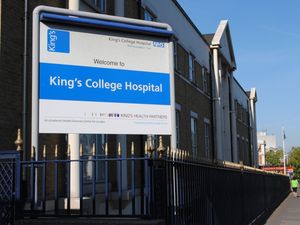Operations and appointments still being cancelled after NHS cyber attack
Urgent and emergency services have remained available as usual.

Hundreds of operations and appointments are still being cancelled two weeks after a cyber attack on pathology services provider Synnovis.
Planned operations and outpatient appointments were forced to be rearranged at the two London NHS trusts impacted most, NHS England London said.
Between June 10-16, the second week after the attack, more than 320 planned operations and 1,294 outpatient appointments were postponed at King’s College Hospital NHS Foundation Trust and Guy’s and St Thomas’ NHS Foundation Trust.
The number of rearranged planned operations has gone down by 494 since the first week after the attack, June 3-9, but the number of missed outpatient appointments has increased by 394.
The total so far is 1,134 planned operations and 2,194 outpatient appointments postponed, according to NHS England London figures.
Synnovis was the victim of a ransomware attack, understood to be carried out by Russian group Qilin, on June 3.
Urgent and emergency services have remained available as usual.It left its ability to process and report blood tests severely reduced.
In response, NHS England London declared a regional incident, which it said allowed it to coordinate with neighbouring providers to manage disruption.
Urgent and emergency services have remained available as usual.
Dr Chris Streather, medical director for NHS London, said: “Although we are seeing some services operating at near normal levels and have seen a reduction in the number of elective procedures being postponed, the cyber-attack on Synnovis is continuing to have a significant impact on NHS services in South East London.
“Having treatment postponed is distressing for patients and their families, and I would like to apologise to any patient who has been impacted by the incident, and staff are continuing to work hard to rearrange appointments and treatments as quickly as possible.
“Mutual aid agreements between NHS labs have begun to have a positive impact in primary care providers, helping increase the number of blood tests available for the most critical and urgent cases.
“Patients should access services in the normal way by dialling 999 in an emergency and otherwise use NHS 111 through the NHS App, online or on the phone.
“They should also continue to attend appointments unless they are told otherwise by the clinic team.”





